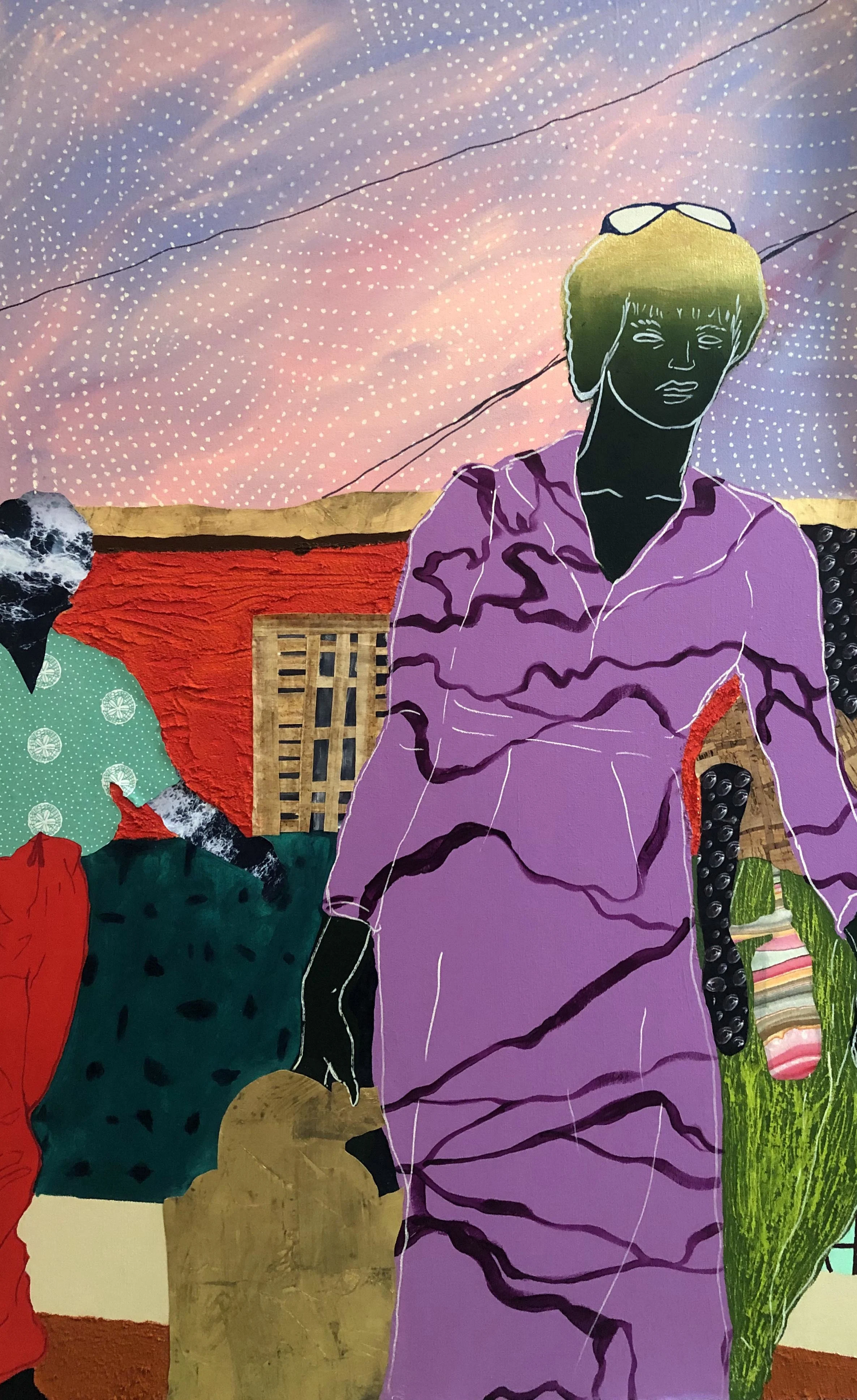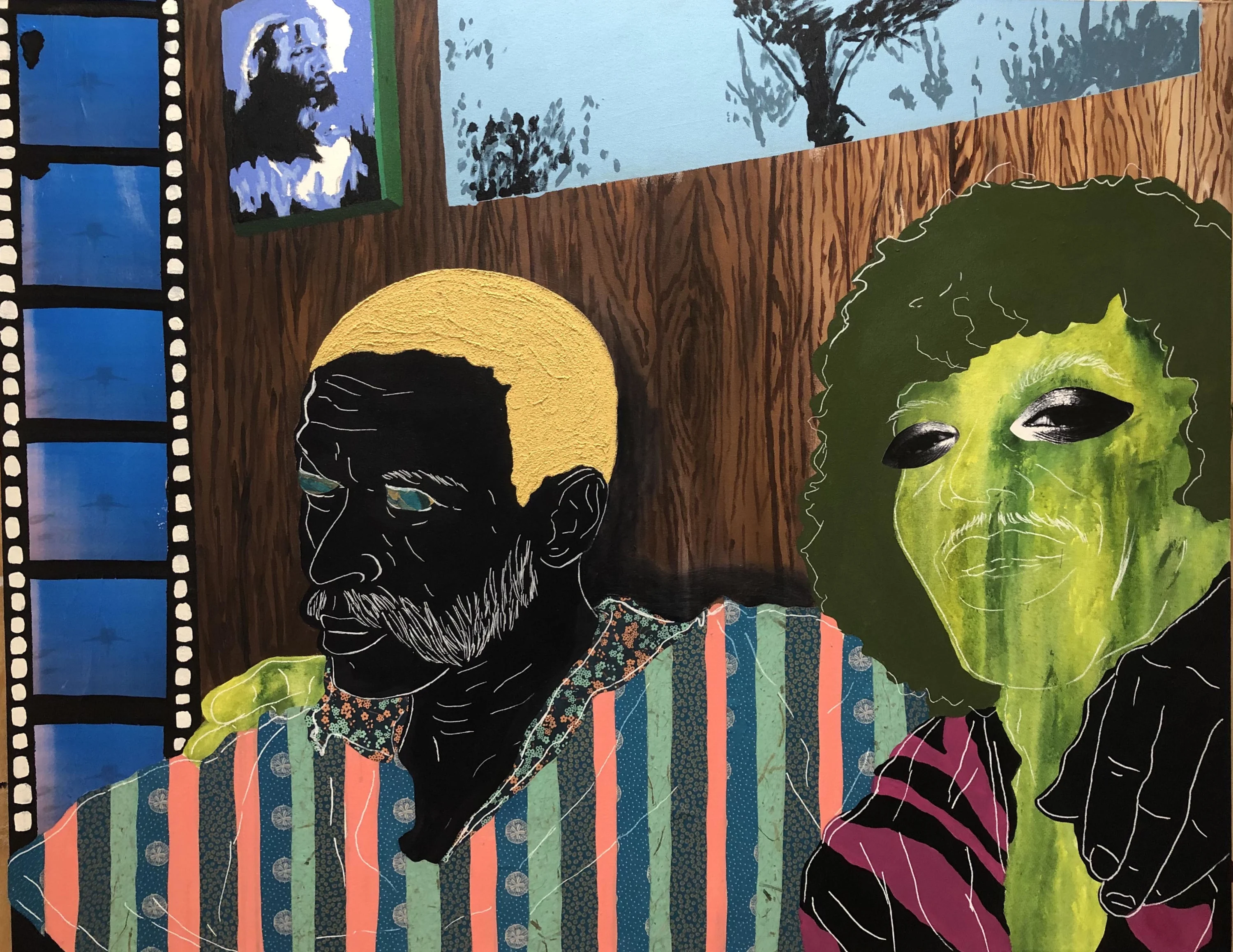
Bahamian artist Cydne Jasmin Coleby has always thought deeply about her own identity, and about how it’s been molded and affected by the actions and the trauma of both her current family members and her ancestors. Here, writer Kemi Falodun explores how the artist’s mixed-media collages focus on the way the experiences of ourselves and those around us often redefine who we are, as Cydne explains that she feels we often have the choice to break away from the past and heal.
A genealogical tree illustrates individuals and how they are connected as the branches grow wider, diverge further. The long-lasting impact of these divergences and connections that cannot be represented by mere lines are what Bahamian artist Cydne Jasmin Coleby is interested in. She discovered early, as the youngest child in a large household, that the most effective way to connect with her family was through stories. She asked questions and absorbed answers, and through digital and mixed-media collages, she channels those stories into art that explores familial legacies.
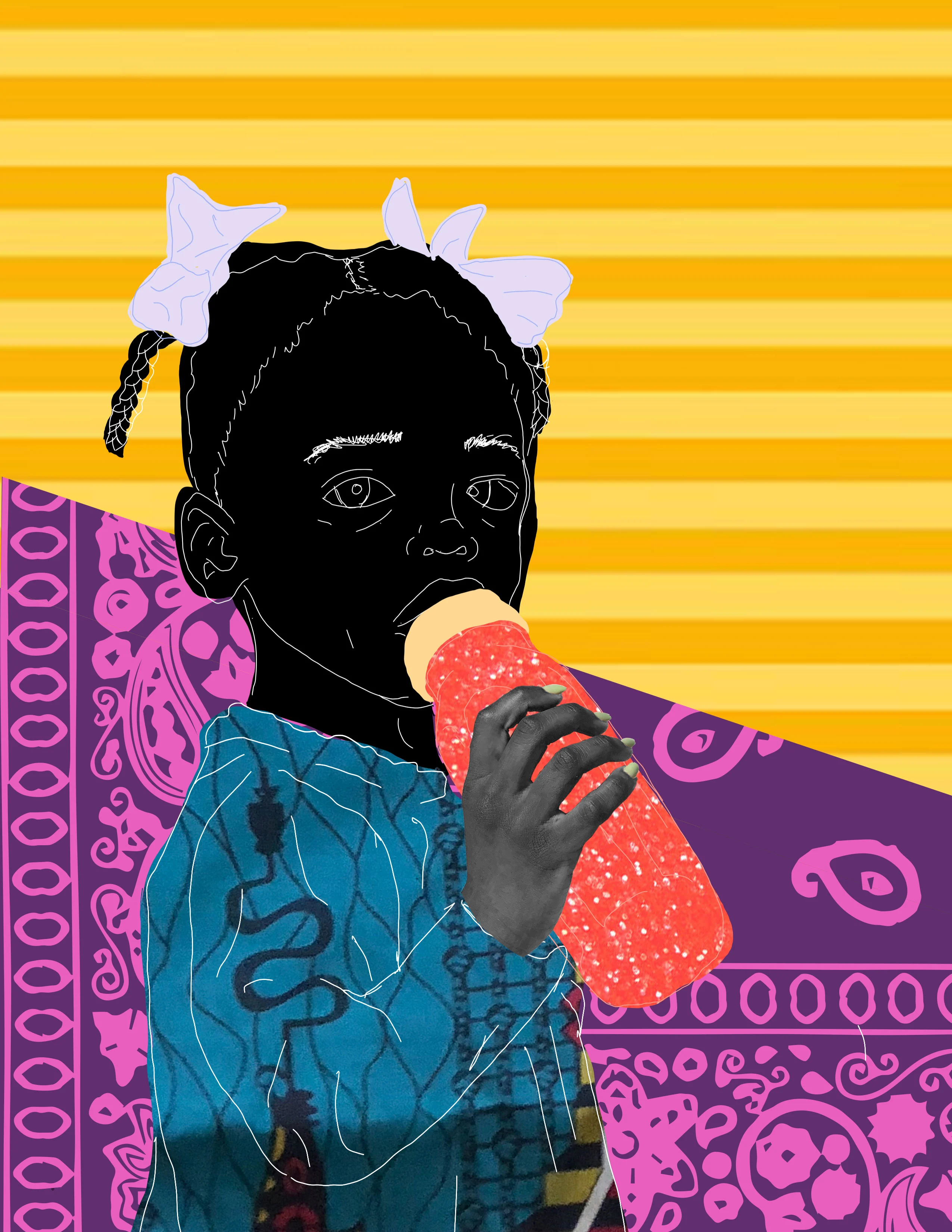
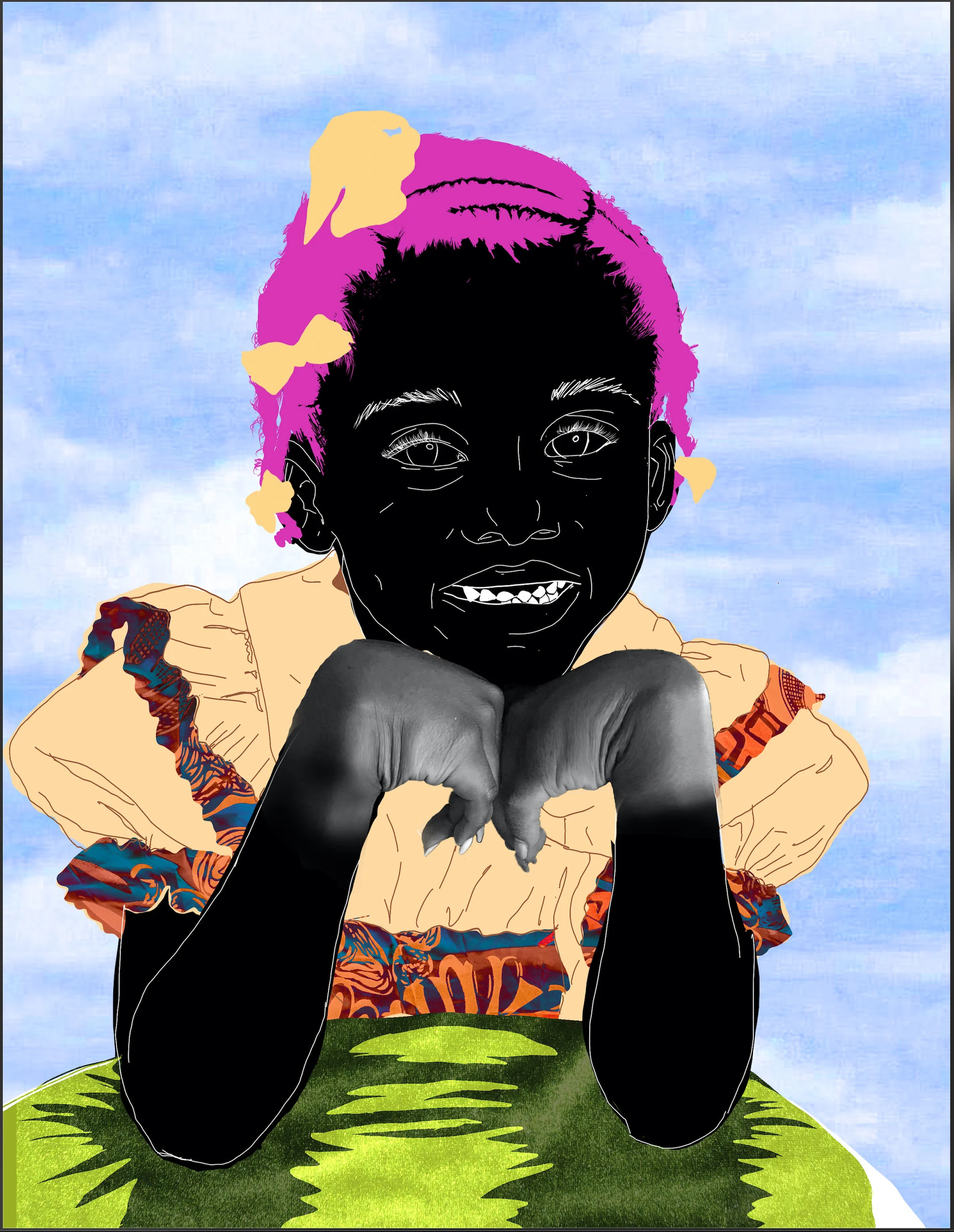
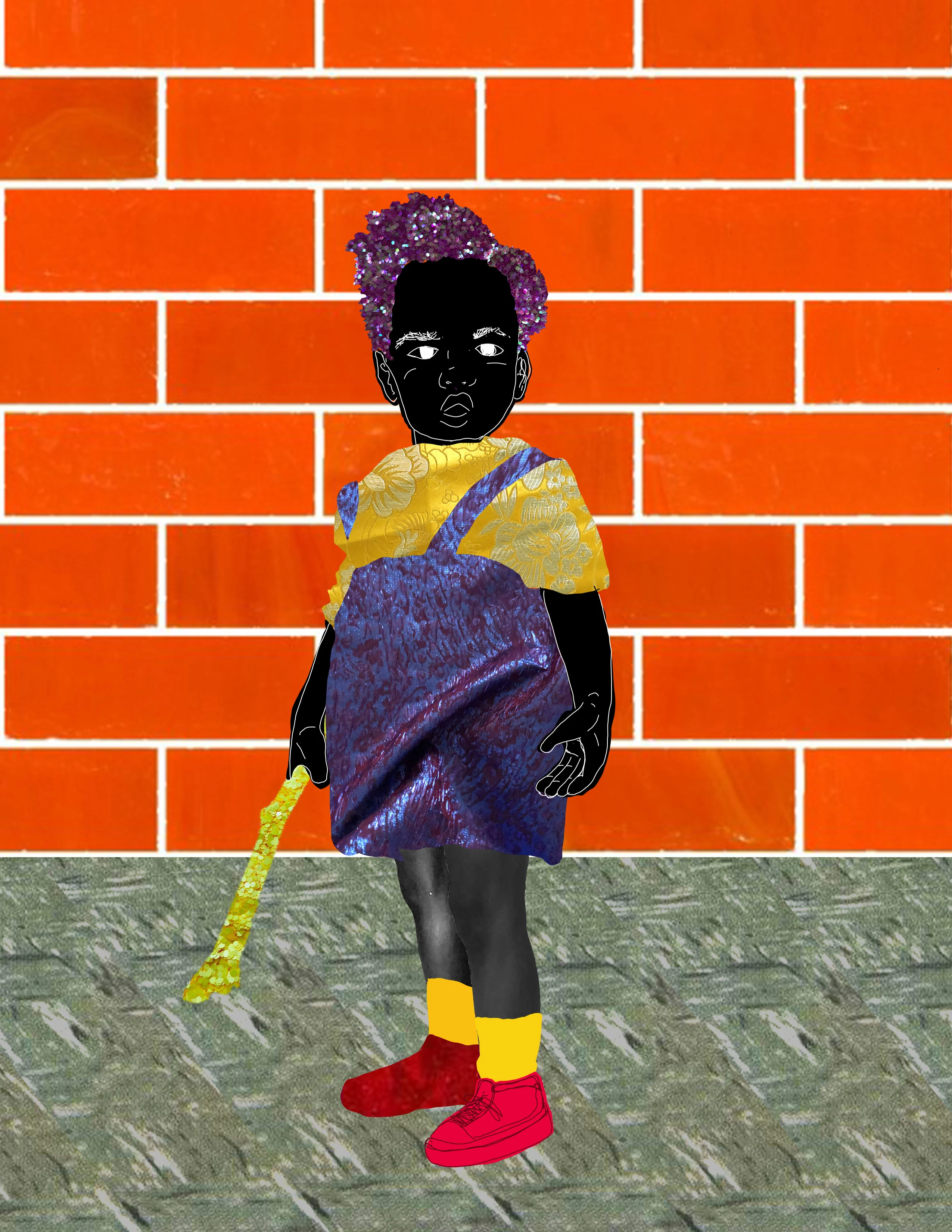
Cydne believes life is an amalgamation of different components and that there’s no one way to be in the world. This ethos informs her choice of materials, ranging from acrylic to decorative paper, photo collage, and texture elements such as glitter and sand. In her series “Generational Curses,” Cydne digitally altered photographs of herself and members of her family to examine how the “actions and personality traits of one member of the African diaspora can influence the way another member is perceived.” The piece “She Spells Her Cydne with a C (Study)” portrays a little girl with the hand of an adult cut out from a photograph. She’s holding a water bottle to her mouth, looking ahead. “In a family, it takes a moment to notice certain cycles,” says Cydne. “You can see how traits are developed in that environment.” The work’s title reflects such moments of realization and the presence of mind to rebel against the norm.
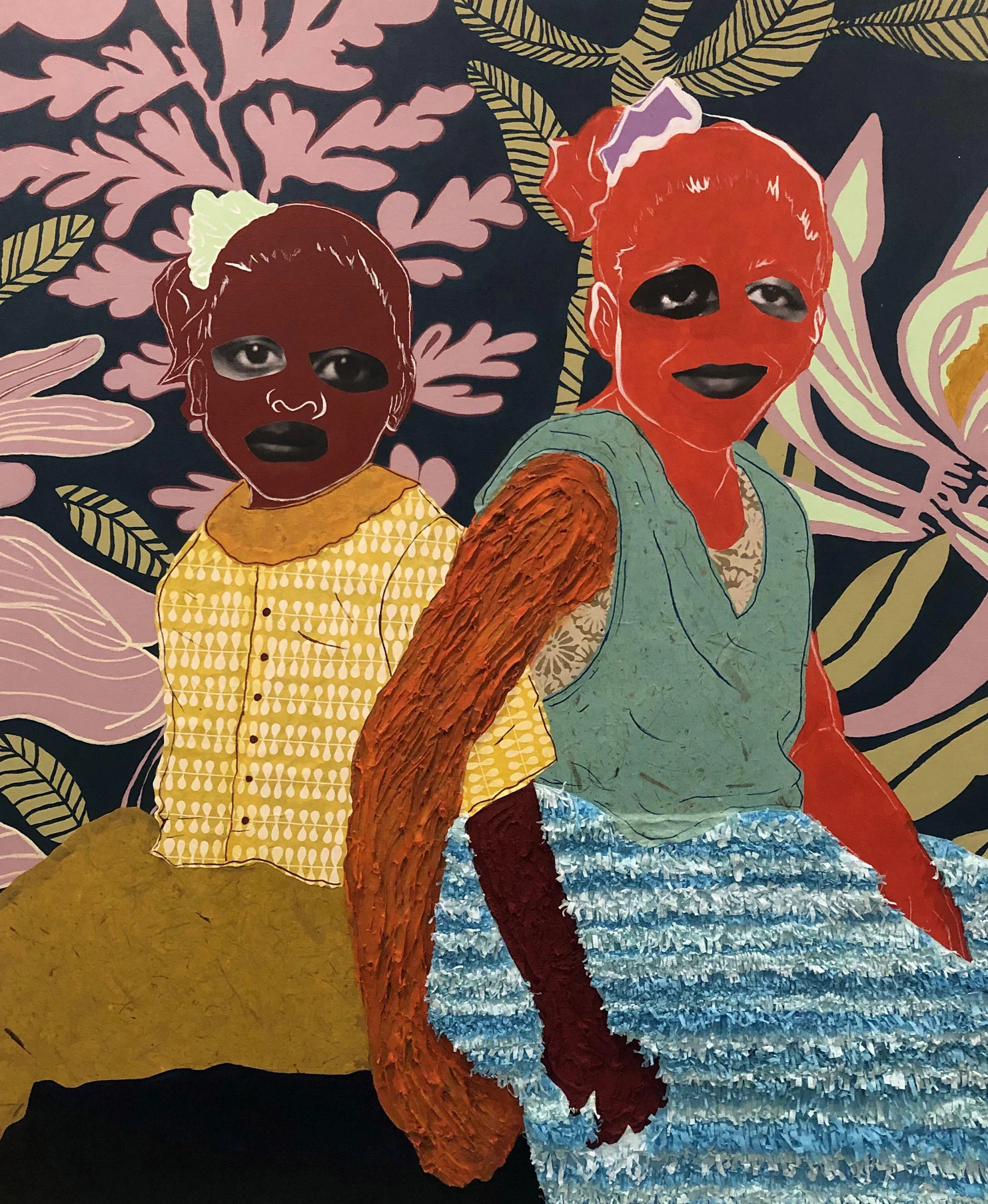
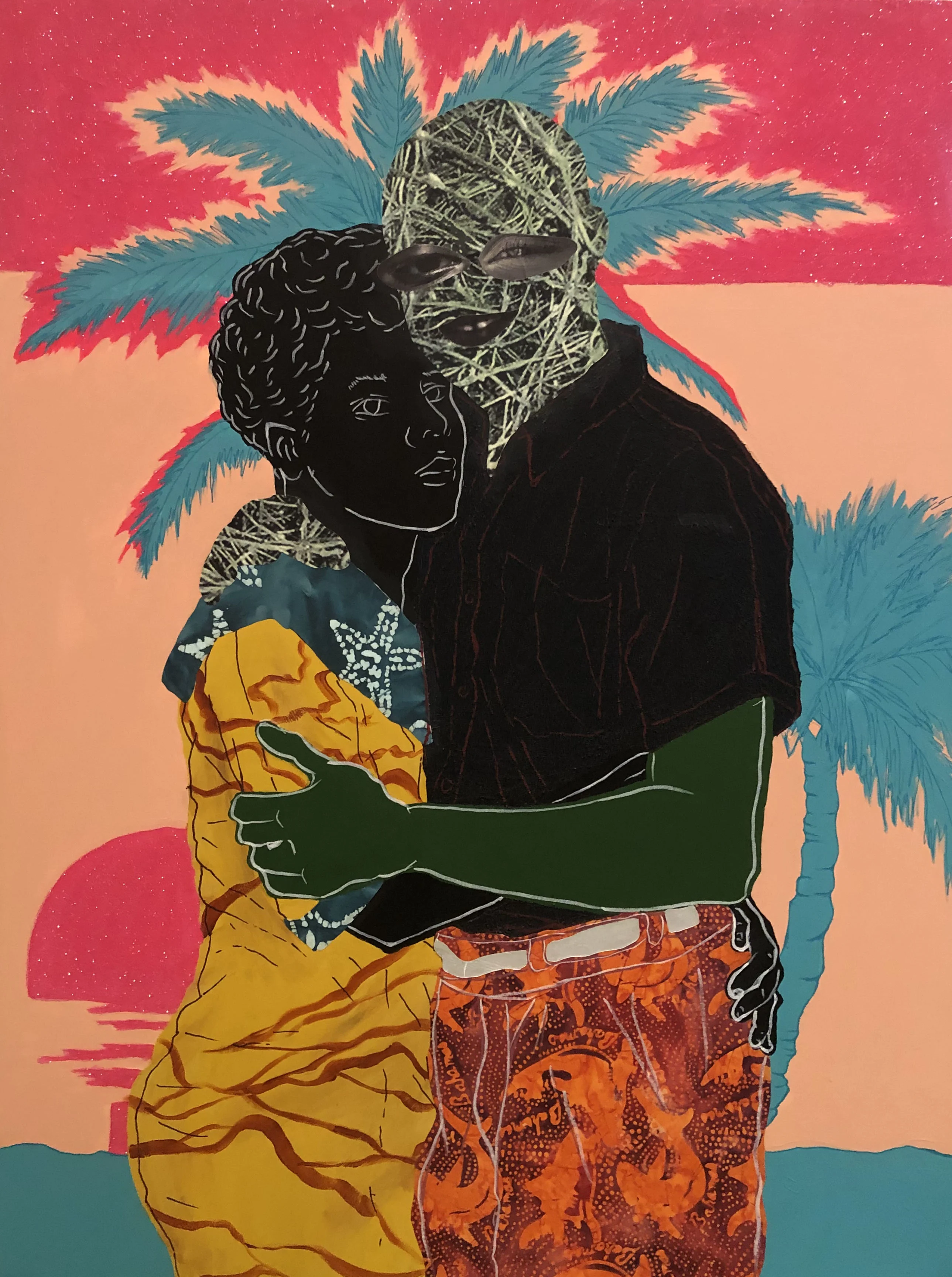
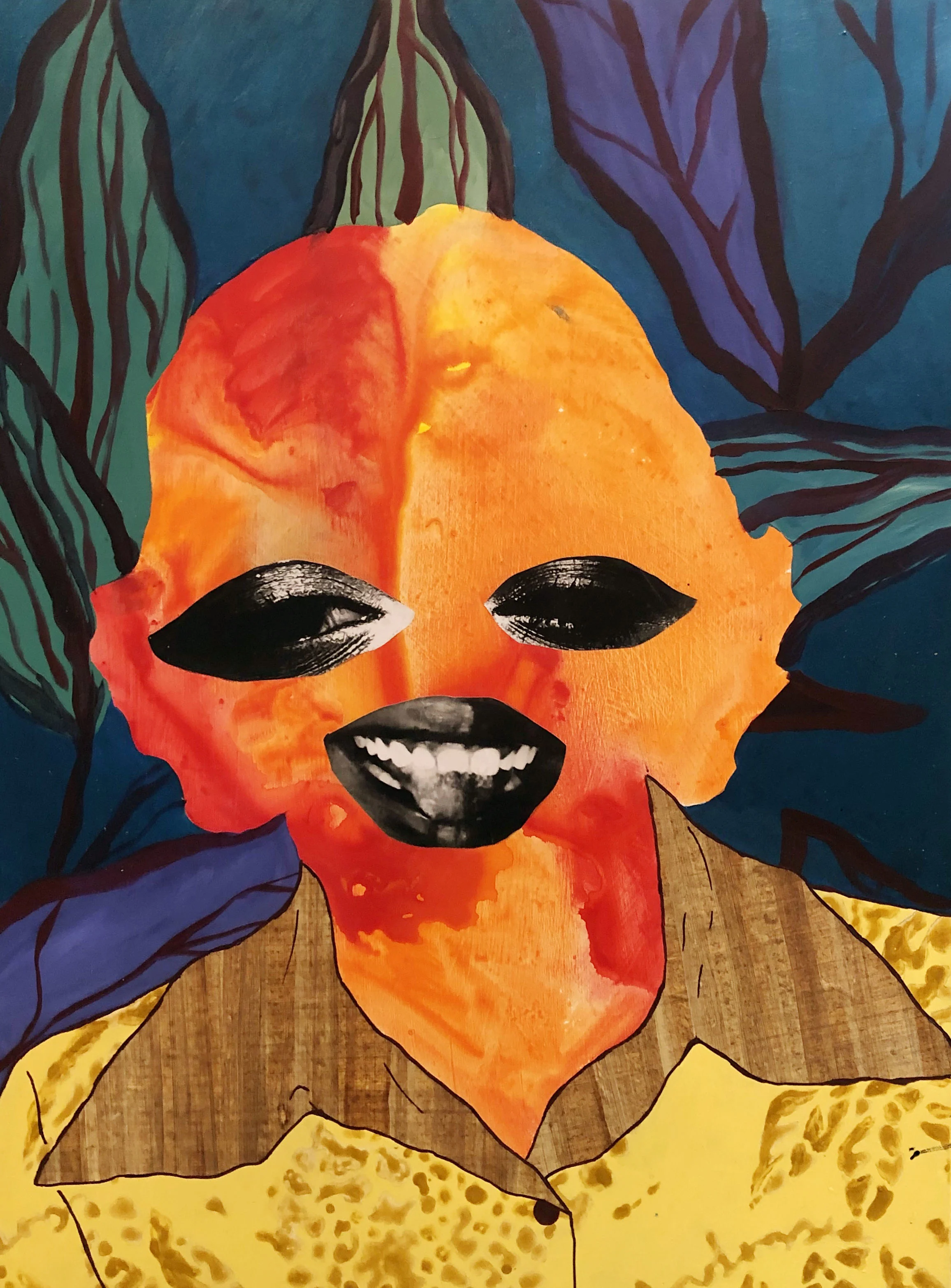
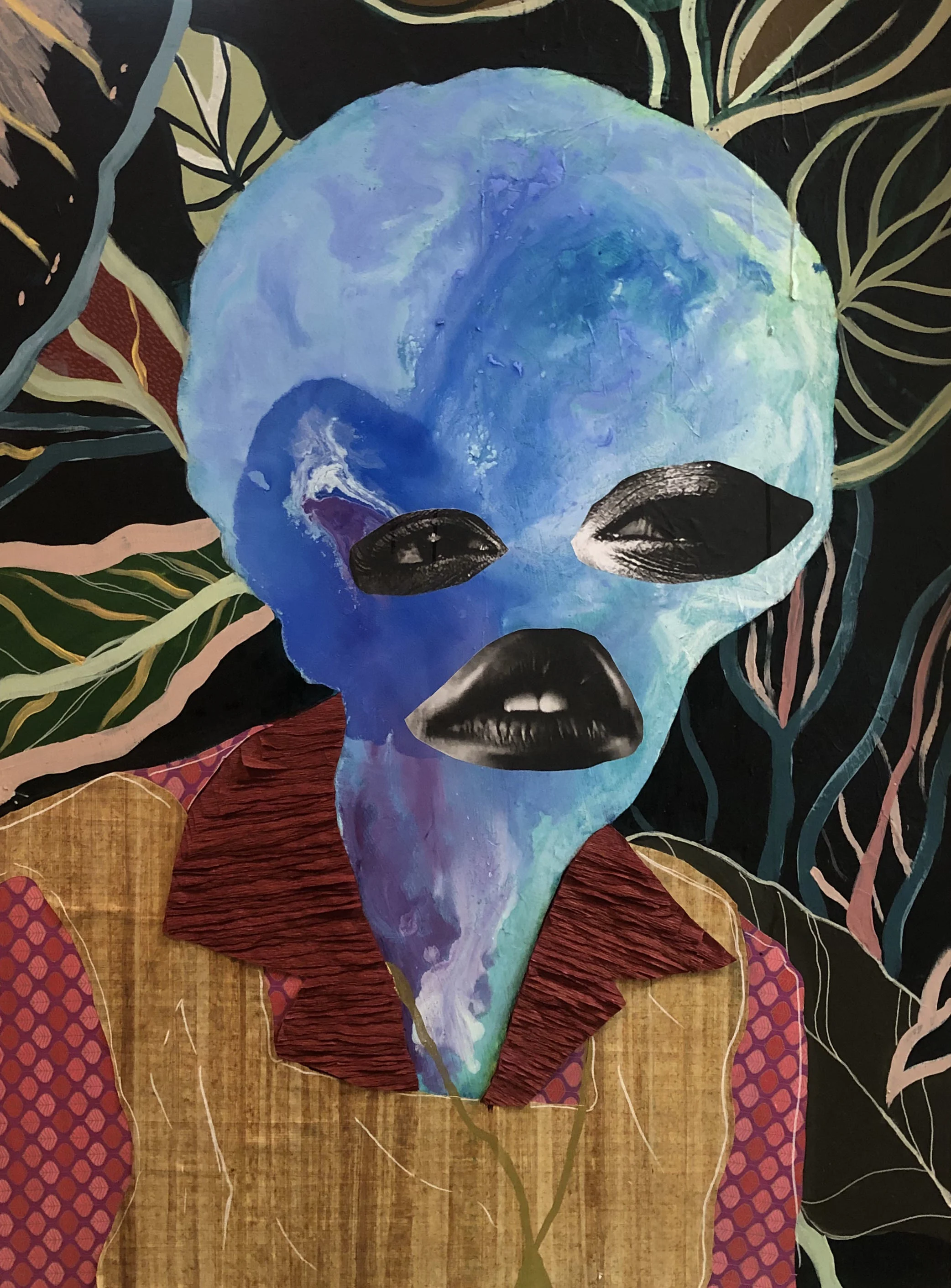
Born in 1993, Cydne has always been drawn to family histories, intergenerational trauma, and how people move through the world with their bodies—their primary home. She realized that art can ignite conversations with an audience she would otherwise have no access to, including the dead. Between 2011 and 2014, Cydne lost her father, grandmother, and four other relatives. There was pain and anger towards her father, who left his family when she was a teenager. However, the passage of time sometimes shifts perception to accommodate life’s complexities. In her series “Family Matters,” by substituting body parts in old photographs with images of her body in the current state, Cydne becomes the object and the voyeur. Her work is an attempt to confront familial trauma and “unearth family skeletons with curiosity and sensitivity.” After the death of her relatives, she got closed off to new connections. “I was terrified of losing someone else,” she says. She later realized that “reconnecting with them in a new way” would help her heal.
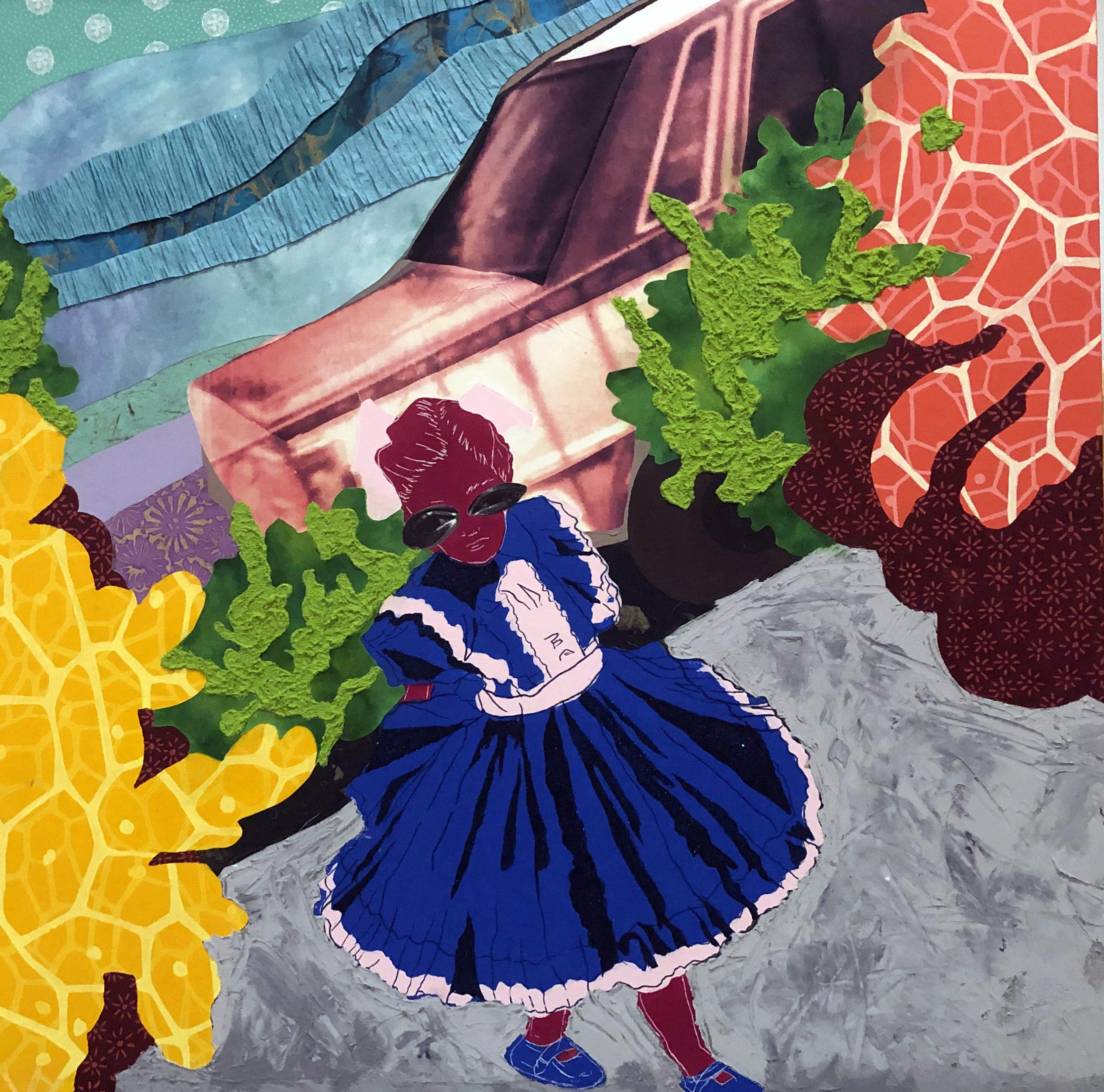
If Cydne could speak to her father right now, she’d say, “I forgive you, and I don’t hold the way you weren’t able to show up for me against you.” Now, she understands that he, too, was navigating the world as best he could while trying to break out of haunting familial patterns. “You see things repeated and you’re conditioned to think this is the way to act or be,” she says. “The gray area is understanding you have a choice in the matter and in how much you heal.” She feels more equipped now to deal with the past without judgment. “In Council With My Morality” depicts a little girl with eyes and lips cut out of a black and white photograph, sitting in between a faceless man and woman. “He [father] lived in a different time. He didn’t have access to mental health care. But he did the best with what he had.”
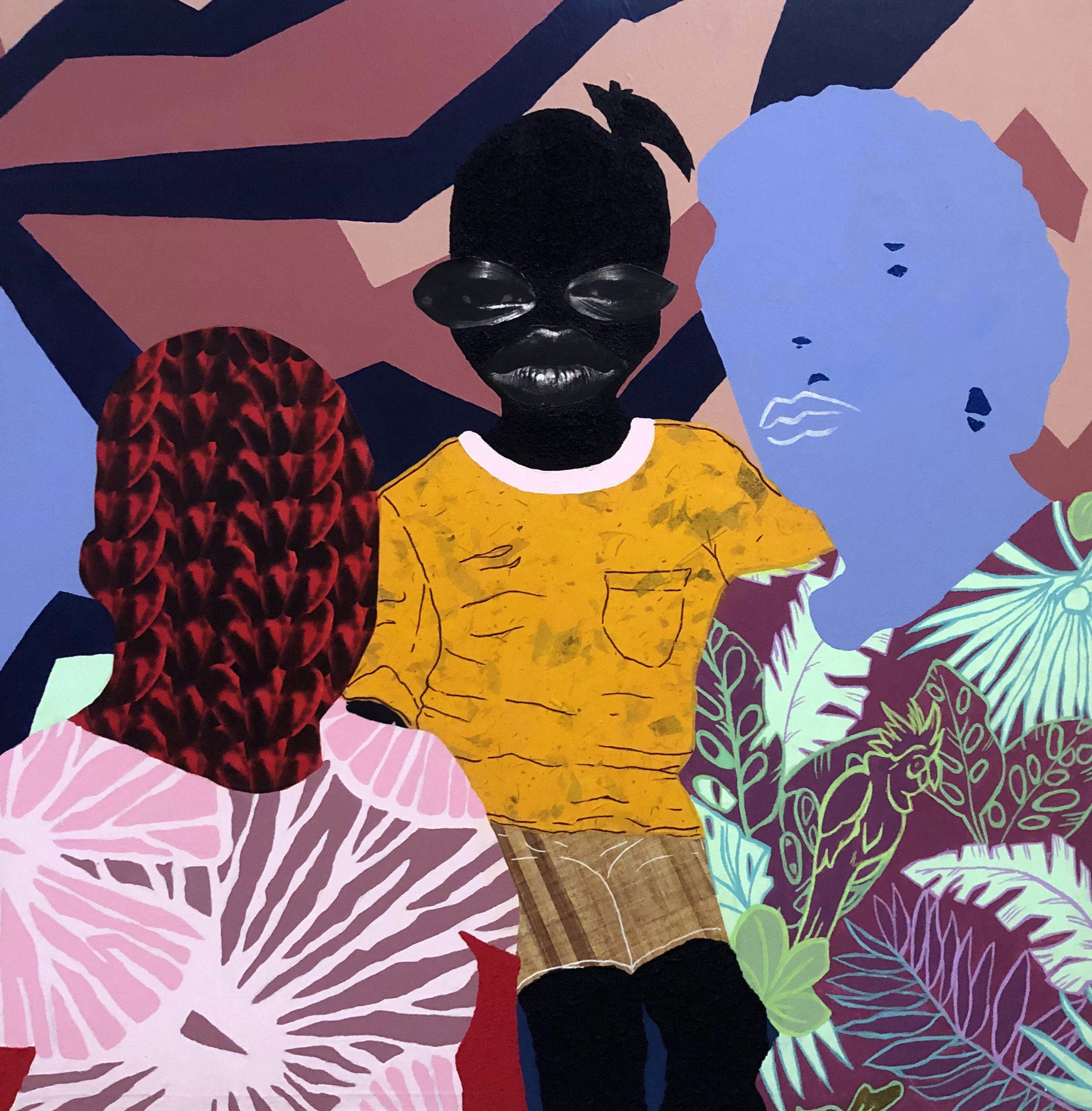
Besides ancestral relationships and generational trauma, Cydne also explores gender identity, particularly the experiences of Black women, often seen as aggressors for daring to speak or take up space. Bahamian women are considered “biggity,” she says, and that’s because girls develop an anger and a defensiveness as they grow up. “What’s come before defines how you have to be, and at some point it becomes who you are. Sometimes I don’t even know how to be soft,” she says. In “Can I Help You? No, We Straight,” a woman stands, back turned away, with hands on hips, just above buttocks made of fruits. Here, there’s a refusal to be sexualized, boxed, or disregarded because of her gender. Turning inward, Cydne also examines identity in “A God Called Self,” a series on self-love, sex and tenderness. “I don’t feel we’re allowed to have the fullness of who we are. We don’t want to be on the defensive all the time,” she explains.
Bahamian painter Sonia Isaacs contributed to Cydne’s understanding of colors, and she’s fascinated by how they vibrate against one another. “I don’t want to shy away from certain things. I like my work to be bold,” she says. Other influences include artists like Jackson Burnside for how he uses materials, as well as Wangechi Mutu and Maxwell Taylor for their cultural and social commentary.
Cydne started making art as a child, even when the only artist in her family was her musician uncle. “I always knew that art was a possibility,” she says. Her mother supported her, despite knowing life as an artist could be difficult, and a background in graphic design shines through in the way she manipulates shapes, tones, and different materials. “I want to show all these layers because life is very layered. People don’t have to be fully polished in order to occupy space. I want to see the richness and the fullness of what life is in a piece,” she says.


